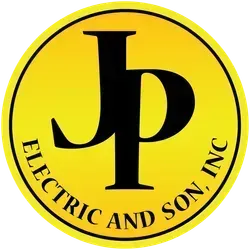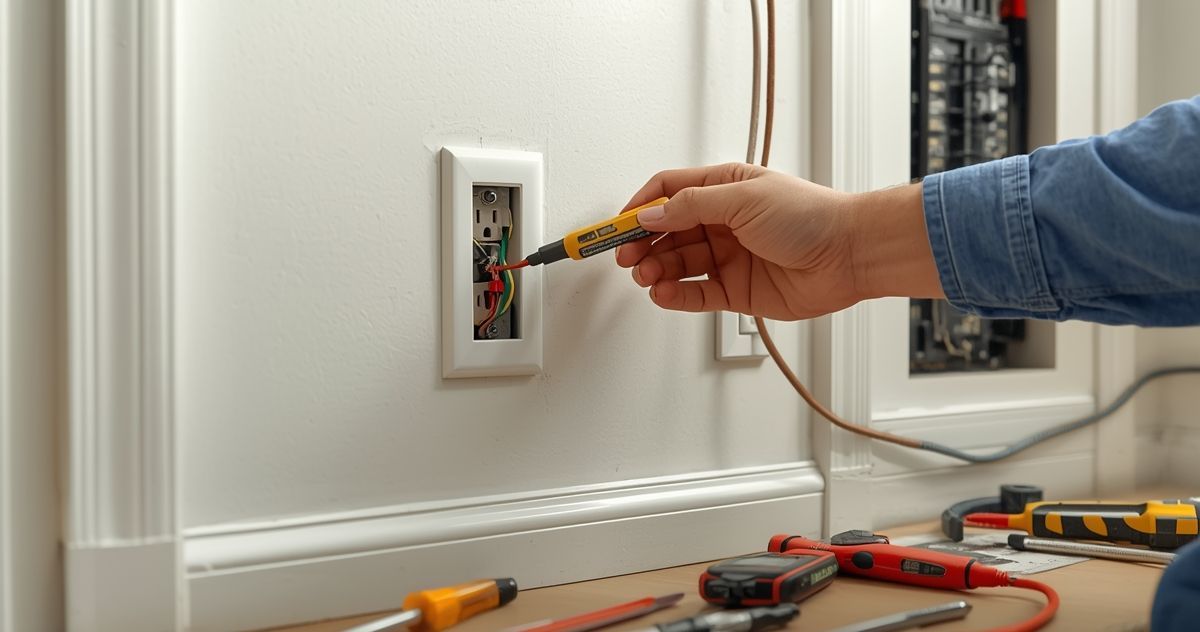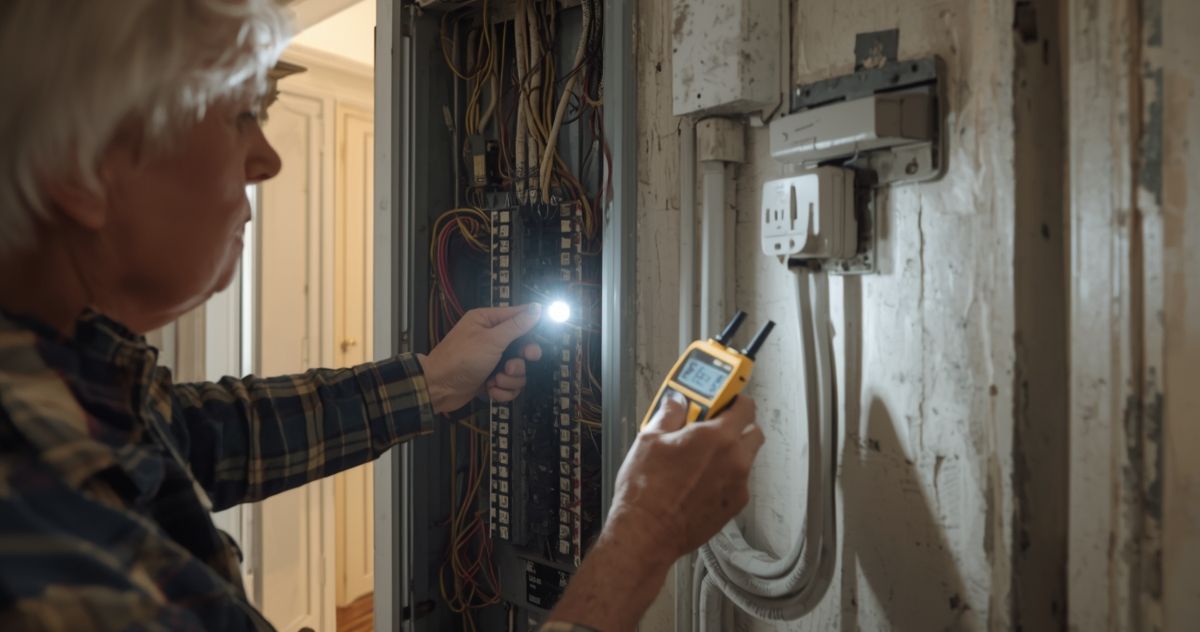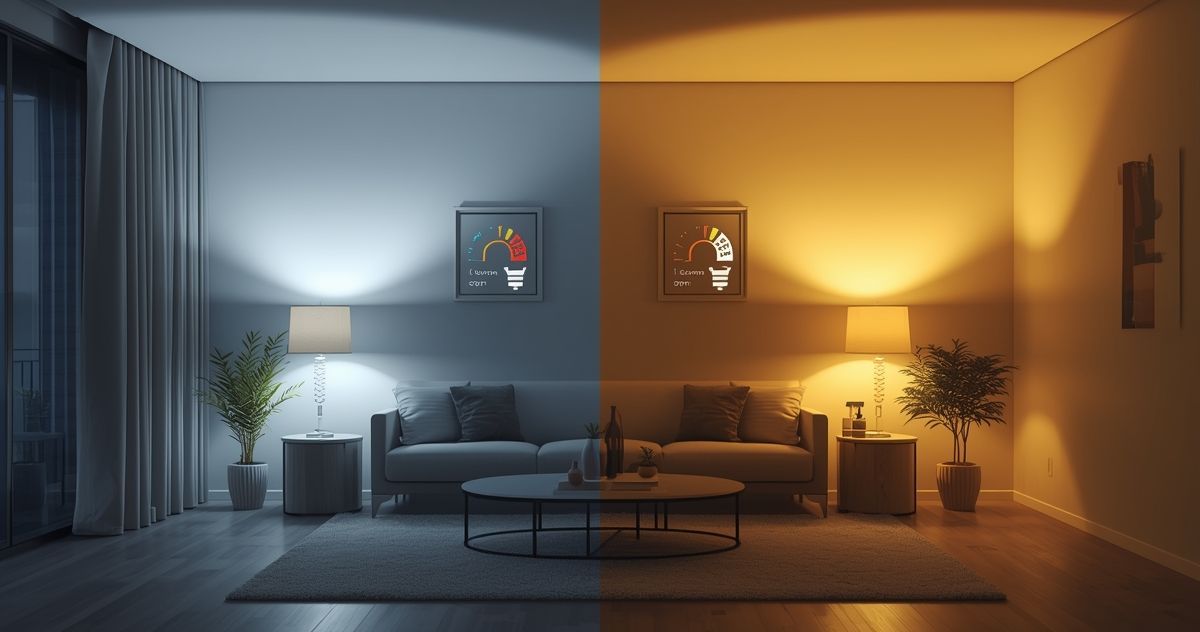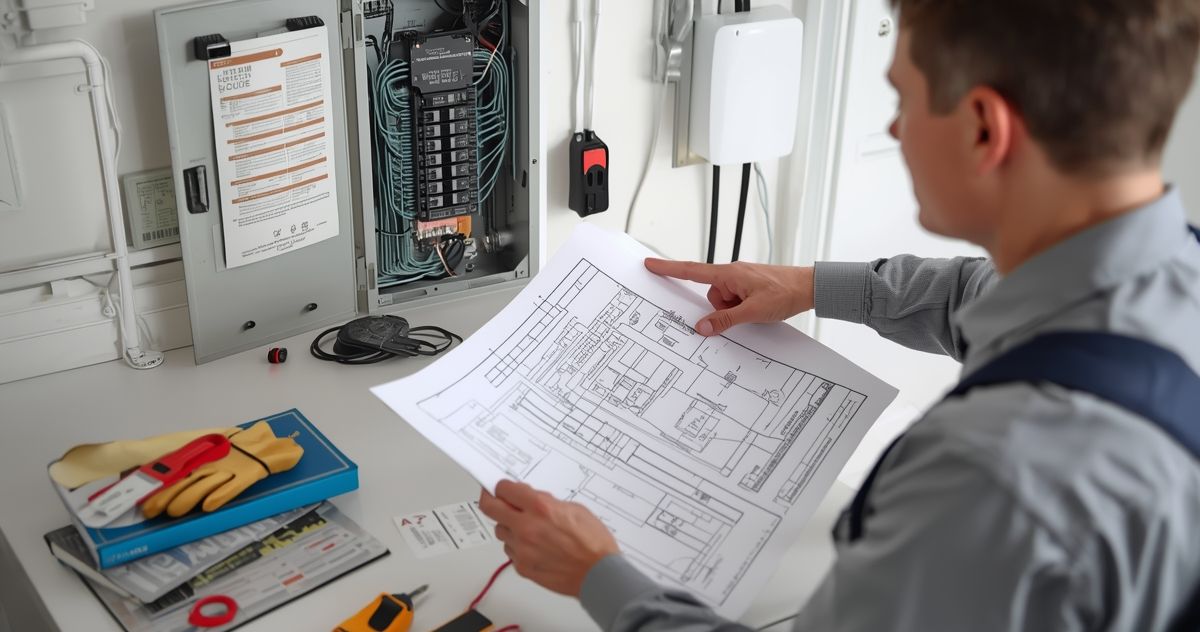How to Pick the Right Light Bulb for Recessed Lighting
When it comes to updating your home's lighting, few fixtures offer the modern, clean look of recessed lighting. But while recessed lights are sleek, the real magic lies in picking the right bulb for your space.
The light bulb you choose will affect everything from ambience and energy bills to the look and feel of your home. At JP Electric and Son, we know how important this decision is.
Read on to learn how to choose the right light bulb for your recessed lighting, avoid common mistakes, and keep your home shining bright
What Makes Recessed Lighting Special
Recessed lighting, sometimes called "can," "pot," or "downlighting," refers to fixtures installed into the ceiling so that the body of the light is hidden. Only the trim and bulb are visible, offering a seamless finish ideal for kitchens, living rooms, offices, and hallways.
Why Choose Recessed Lighting
- Unobtrusive look that works with any décor
- Even light distribution for workspaces or general illumination
- Zone lighting options for highlighting art, countertops, or room features
Types of Recessed Fixtures
- IC-rated vs. Non-IC-rated: IC (Insulation Contact) rated fixtures are designed for direct contact with ceiling insulation. Non-IC-rated fixtures require a gap for safety.
- Use-specific trims: Options include baffle (reduces glare), reflector (maximizes light), and adjustable/gimbal (directs light where you need it).
Understanding your fixture type is the first step to making your lighting work for your space.
The Big Questions When Choosing a Light Bulb
Not all bulbs are created equal! Here’s what you should consider before buying:
Bulb Type
LED bulbs are the top choice for most homeowners and electricians. Here’s why:
- Use up to 80% less energy than incandescent bulbs
- Lifespans ranging from 15,000 to 50,000 hours
- Cool operation reduces fixture and attic heat
Halogen bulbs are less efficient but produce bright, crisp light and excellent color rendering. They’re sometimes favored for task lighting or where vivid colors matter.
Incandescent bulbs are inexpensive but far less efficient. Most homeowners are now transitioning away from these due to the high energy consumption and short lifespan.
Brightness (Lumens)
Watts measure energy; lumens measure brightness. The higher the lumens, the brighter the light.
- Kitchen or workspace: 800–1200 lumens per fixture
- Living room or hallway: 600–800 lumens per fixture
- Bedroom or soft accent: 400–600 lumens per fixture
A common mistake is to buy based on wattage instead of lumens. With today’s energy-efficient lighting, watts are no longer a reliable guide!
Color Temperature (Kelvin)
The color temperature (measured in Kelvins or K) shapes the mood of your space:
- 2700K–3000K (Warm White): Cozy, inviting, perfect for living areas and bedrooms
- 3500K–4100K (Cool White): Bright and energetic, ideal for kitchens or workspaces
- 5000K–6500K (Daylight): Crisp and vibrant, useful for garages, laundry rooms, or task-heavy environments
JP Electric and Son recommends matching the color temperature to the room’s purpose for the best experience.
Bulb Size and Shape
Bulbs for recessed fixtures commonly include:
- A19: Standard bulb shape, good for larger cans but may look out of place in most recessed fixtures
- PAR30/PAR38: Focused, directional lighting for higher ceilings or spotlights
- BR30/BR40: Broad beam, ideal for general purpose or lower ceilings
Always check the maximum bulb size recommended by your fixture manufacturer. Using the wrong size can impact lighting performance and even safety.
Energy Efficiency
Energy-efficient bulbs are a win-win for your home and wallet.
- LEDs cost a bit more upfront but pay for themselves several times over through savings on your utility bills
- Rebates may be available for switching to LED bulbs in Massachusetts
- Less frequent bulb replacement equals less maintenance and fewer trips up the ladder
JP Electric and Son can help Fitchburg homeowners make the switch to high-efficiency lighting for the best results long term.
Five Steps to the Perfect Bulb
Choosing the right bulb is simple if you follow this step-by-step guide:
Step 1 Identify Your Recessed Fixture
- Is it an IC or Non-IC fixture?
- What trim type?
- What size (4”, 5”, 6”)? This impacts the bulb shape and wattage you should use.
Step 2 Determine Required Brightness
- Think about the function of your room.
- Match lumens to your needs (use our guide above for reference).
Step 3 Select Color Temperature
- Decide if you want warm, neutral, or daylight tones.
- For open-plan houses, consider whether adjacent rooms should have the same or different color temperatures.
Step 4 Choose Size and Shape
- Check your trim and fixture specifications.
- Pick a bulb compatible in both physical size and beam angle.
Step 5 Consider Efficiency and Long-term Costs
- Lean toward high-efficiency LEDs for savings and convenience.
- Ignore the old watt-based habit in favor of lumens and listed life hours.
Avoid These Frequent Mistakes
Even experienced DIYers can get tripped up by these errors:
- Using the wrong wattage: Overpowered bulbs can overheat the fixture, causing fire risks or damage.
- Ignoring color temperature: This can leave rooms feeling too harsh or too dim for their meant purpose.
- Overlooking bulb size and shape: This can result in bulbs sticking out, not fitting, or dispersing light incorrectly.
- Neglecting energy efficiency: Cheaper upfront may mean higher bills for years.
Installation and Maintenance Tips
A little care during installation can extend your lighting’s life and keep your home safe:
- Switch off power at the breaker before removing or installing bulbs.
- Use a sturdy ladder and avoid overreaching.
- Handle bulbs with care: Oils from your hands can shorten the life of halogen bulbs, and dropping an LED can disrupt its circuitry.
- Dispose of old bulbs safely: Many localities (including MA) have recycling for old LEDs and banned incandescents.
- Wipe down trim and bulbs periodically to remove dust and maintain maximum brightness.
JP Electric and Son’s Expert Advice
With more than 13 years of experience in Fitchburg and across Massachusetts, the electricians at JP Electric and Son have handled thousands of recessed lighting installations and upgrades.
Some of the highlights of our electrical approach include:
- Thorough inspections before every job to ensure your entire electrical system is up to code and ready for upgrades
- Upfront, detailed quotes and full consulting so you always know your options
- Unmatched customer loyalty and on-time service you can rely on
Don’t just take our word for it. Local clients in Fitchburg and beyond consistently recommend us as their residential electrician of choice for all electrical needs.
We handle every project for safety, efficiency, and long-term satisfaction.
Lighting Up Your Space with Confidence
Choosing the right light bulb for your recessed lighting doesn’t have to be overwhelming if you approach it step by step.
With so many advances in LEDs, color temperature options, and bulb shapes on the market, you can craft the perfect lighting atmosphere while enjoying years of energy savings.
If you’d like expert guidance or need help with recessed lighting installation service, call JP Electric and Son today for a consultation.
Our satisfaction guarantee and dedication to customer service set us apart as Fitchburg, MA’s trusted residential electrician. Your home deserves nothing less than the best in lighting and electrical care.
For more information about our commercial electrician services in MA, Schedule Your Consultation Today.
